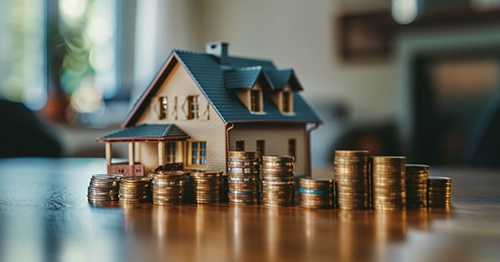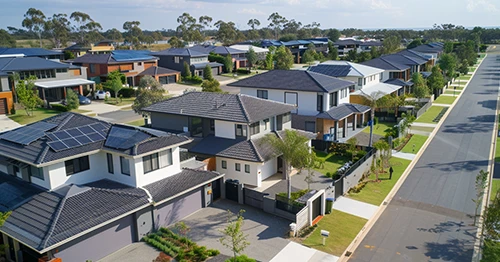Updated: 26 Feb, 2025
The first step in buying a home is to get your finances in order.
There are many would-be home buyers who have some small debts like a credit card or personal but no savings.
So should you save a deposit or pay off debts?
Step 1: Can you buy now with no deposit?
You didn’t expect me to say that did you!
Believe it or not it’s possible to buy a home with no deposit using a variety of sneaky tricks. By far the best method is with the help of your parents in the form of a guarantor loan.
With a guarantor loan, you can borrow the full cost of the property, the stamp duty and in some cases you can consolidate a few debts into your home loan as well. You also get a better interest rate and waived LMI. If that isn’t “winning”, I don’t know what is.
Step 2: What is limiting you?
Okay, let’s assume that you were a bad teenager and your parents don’t want to help you out. Should you save or pay off debts?
Banks have many requirements that you need to meet to qualify for a home loan. The ones that stop most first home buyers are:
- You need a deposit, typically 5% to 10% of the purchase price depending on government grants.
- Your deposit must be genuine savings.
- You mustn’t have too many debts otherwise you’ll fail credit scoring.
- And then there is everything else (don’t read all of this: you’ll go insane!)
The question is, what’s the main roadblock stopping you from getting approved?
As a general rule, if you have less than 5% of the purchase price in unsecured debts such as credit cards, personal loans & car loans then it’s the size of your deposit that’s stopping you. Ignore HECS-HELP debt for the purposes of this exercise. They’re assessed a little differently by the banks.
If you have more than 5% of the purchase price in debts then it’s your mountain of debt that should be tackled first before you start to save a deposit.
Step 3: Paying off debts
Let’s say it’s your debt that’s stopping you. Firstly, don’t borrow any more money! No new cars, no shiny new toys. Yes, buying a home does mean making sacrifices but the bigger sacrifice is renting for the rest of your life because you can’t stop spending.
Pay off your most expensive debts first. That’s normally your credit cards. Make sure that all of your repayments are on time because nowadays credit reporting agency Veda Advantage is keeping all of this data on your credit file for up to two years. Being just five days late on a payment can affect your borrowing capacity.
When should you stop paying off debts and switch to saving a deposit? You can post your situation on our Disqus comments section below and one of our brokers will let you know. As a rough guide, it’s when you owe less than 5% of the maximum purchase price that you’re going for.
Step 4: Switch to saving a deposit
Now you’re getting closer! Open up a high interest savings account and add to it every time you get paid. Ideally, ask your employer to split off part of your pay and send it direct to your savings account so you don’t even see it.
By having a separate savings account and adding to it regularly you’re showing that you’re good with your money. When you go to apply for a mortgage, we can show your savings history to the bank and it will really help to get you approved.
Your goal is 5% of the purchase price as a minimum but this can vary. For example, maybe your state government has a first home owners grant and stamp duty exemption for people who buy a new property. In this case, you can usually buy a little earlier.
Give us a call on 1300 889 743 or fill in our free assessment form and our mortgage brokers will let you know how much you need to save to get approved.
Step 5: Sort out anything else that is in the way!
Will the bank accept your employment? Do you have the borrowing power needed to get approved? Is your credit history clean?
There’s no shortage of things that can catch you out. If you have a look at our team you’ll see that many of our mortgage brokers have worked in a bank as the person actually approving and declining loans! They can let you know exactly how the banks will see your situation and what you need to do to get approved.
Step 6: Buy a home, have 2-3 children & live happily ever after!
Buying a home is a whole different story with its own factors to consider. A good place to start is by knowing the steps to buy a home and learning about getting a pre-approval.
Good luck on your journey!





